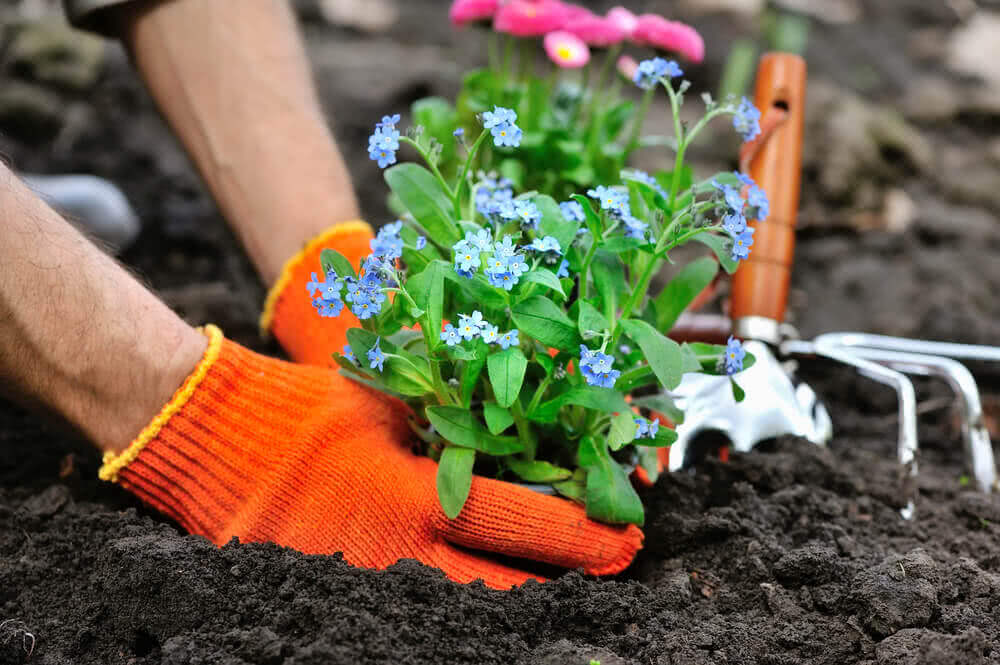Professional Gardening Tips to Transform Your Outdoor Space Into a Heaven
Professional Gardening Tips to Transform Your Outdoor Space Into a Heaven
Blog Article
Unlocking the Conveniences of Gardening: A Comprehensive Look at the Various Kinds and Their Influence On Wellness
Exploring the complex benefits of horticulture exposes a range of methods that substantially improve individual wellness. From veggie and herb gardens to container and raised bed arrangements, each kind uses unique advantages that prolong past plain cultivation. These tasks not just foster physical health and wellness through active engagement however likewise add to mental health by minimizing stress and encouraging mindfulness. As we analyze these varied gardening methods, it ends up being noticeable that their impact can reverberate on individual, social, and environmental levels, prompting a more detailed look at how these links create a natural story of alternative health.
Kinds of Horticulture
:max_bytes(150000):strip_icc()/close-up-of-a-women-watering-vegetables-in-a-raised-bed-1407277094-c63fd1ff0a21406ebf17c51ac6c6f2d1.jpg)
Flower horticulture, an additional preferred classification, highlights the visual charm of grown blossoms. This type can boost landscapes and promote biodiversity by drawing in valuable pollinators. Likewise, herb horticulture involves growing aromatic and cooking plants, contributing both to food preparation and natural treatments.
Container gardening deals adaptability, making it possible for people with restricted area to take part in gardening by utilizing pots and planters. This method is particularly prominent in metropolitan settings. Elevated bed gardening, on the various other hand, entails producing raised stories that enhance dirt drain and ease of access, making it much easier for garden enthusiasts to manage their plants.
Lastly, neighborhood horticulture promotes collaboration amongst people in shared rooms, promoting social communication and collective responsibility. Each type of gardening offers unique objectives and accommodates various preferences, making horticulture a functional activity that can be tailored to specific requirements and atmospheres.
Mental Health Advantages
Involving in different kinds of gardening not just generates tangible incentives such as fresh fruit and vegetables and gorgeous blossoms yet also uses significant mental wellness advantages. Research suggests that horticulture can be a powerful tool for decreasing stress, anxiety, and clinical depression. The act of often tending to plants and cultivating a yard promotes a feeling of objective and success, which can boost general psychological health.
Moreover, horticulture urges mindfulness, as it calls for individuals to concentrate on the existing moment, whether it be growing seeds or nurturing growth. This mindfulness practice can lead to decreased rumination and enhanced mood security. The exposure to natural environments throughout horticulture has also been connected to boosted cognitive functioning and lowered feelings of exhaustion.
Social interaction plays a vital duty in psychological wellness, and neighborhood gardening campaigns provide opportunities for individuals to get in touch with others, fostering a feeling of belonging. The common experience of gardening can grow relationships and assistance networks, further boosting psychological resilience.
Physical Wellness Benefits
Lots of individuals may not understand that gardening also gives considerable physical health advantages. Participating in horticulture activities needs a variety of physical activities, including flexing, training, digging, and planting, which collectively add to enhanced toughness, flexibility, and endurance. These activities can boost cardio health and wellness by advertising a raised heart rate, consequently decreasing the risk of heart condition.
In addition, horticulture can function as a moderate-intensity workout, assisting individuals attain suggested exercise degrees. Research studies indicate that normal engagement in gardening can melt considerable calories-- roughly 200-400 calories per hour, depending on the intensity of the jobs performed. Such calorie expenditure is advantageous for weight administration and general metabolic health and wellness.
Furthermore, exposure to sunlight throughout gardening can assist in the synthesis of vitamin D, which plays an essential role in keeping bone health and wellness and sustaining immune function. Additionally, the act of horticulture usually includes dealing with soil, which has actually been connected to possible Visit Your URL mental and physical health and wellness advantages because of the existence of helpful microorganisms. Gardening.
Social Links Via Gardening
The public elements of gardening foster purposeful social links among people. Area yards, in particular, serve as lively hubs where people from diverse backgrounds come with each other, growing not only plants yet also connections. These shared rooms encourage collaboration, allowing people to exchange understanding, skills, and resources, thereby boosting their horticulture experience and promoting a feeling of belonging.
Involvement in gardening activities commonly brings about the development of relationships and assistance networks. Participants frequently join for typical objectives, such as growing periods, harvest parties, or instructional workshops, which enhance interpersonal ties and create a feeling of neighborhood. Such interactions can minimize feelings of isolation and boost site mental wellness, as people find friendship and camaraderie in common ventures.

Ecological Impact of Horticulture
Gardening significantly contributes to environmental sustainability in multiple ways. Home gardens offer important habitats for numerous types, consisting of pollinators such as and butterflies, which are vital for ecological community health.

Additionally, yards play an essential function in water preservation. Tactical landscapes, consisting of native plants and xeriscaping, lower water usage and prevent overflow, thereby safeguarding local waterways from pollution.
Final Thought

The varied types of gardening-- including veggie, flower, natural herb, container, and elevated Recommended Site bed-- contribute to mental and physical health, foster social connections, and promote environmental sustainability. By engaging in horticulture techniques, individuals can experience enhanced high quality of life while additionally sustaining community bonds and environmental wellness.
Report this page